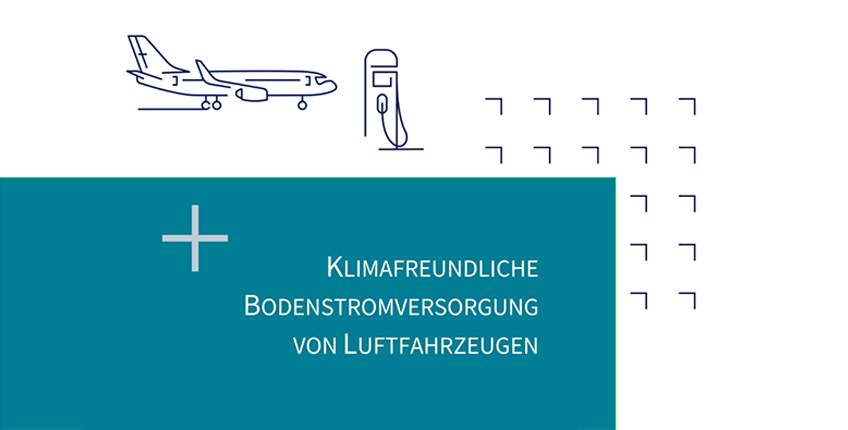The market study gives an overview of technical aspects, market availability, cost structure and conversion challenges of emission-free ground power systems as well as the status of conversion at German airports.
German airports must fulfill the requirements of the Alternative Fuels and Infrastructure Regulation (AFIR) by January 2030, which requires a fossil-free ground power supply for stationary aircraft. Commissioned by the Federal Ministry for Digital and Transport (BMDV), a study by Dornier Consulting International GmbH published today provides airport stakeholders with a clear overview of climate-friendly power supply options for airplanes on the ground and the defossilization of the apron. The focus of the market study is on technical aspects, market availability, cost structures and conversion challenges.
Reduction of emissions at airports with ground power supply
Airplanes also need power on the ground while they are being serviced, loaded and refuelled. Today this power still primarily comes from auxiliary turbines in the airplane or is produced by external diesel power generators, so-called GPUs (ground power units). With direct current, batteries or hydrogen, airplanes can be powered more efficiently, emission-free and considerably more quietly than ever before. E-GPUs emit zero emissions during operation and are much more efficient compared to diesel-operated GPUs.
Funding possible through the BMDV
The purchase of climate-friendly solutions is funded by the BMDV under the funding programme for the market activation of alternative technologies for the climate- and environmentally-friendly supply of aircraft with ground power at airports (Ground Power Guideline). Applications for the second funding call can be made from 13 May 2024 until 14 June 2024 at 3pm.
Great potential at German airports
The now published market study supports airports in the application process by providing an overview of existing technologies and potential applications. Overall, the study comes to the conclusion that the purchase costs of battery GPUs are still higher than conventional diesel systems, but that the lower maintenance and operating costs can lead to lower overall costs in the long term, and thus to a competitive advantage.
The study also examines the status of conversion to climate-friendly ground power supply at German airports, which varies widely. While some airports already operate large portions of their apron technology in a climate-neutral way, others are still primarily working with diesel equipment. Challenges include infrastructure limitations, technology, operation and costs, as well as limited grid capacity, lack of charging points and high initial investments.
The contact partner at NOW GmbH is the Climate-friendly Aviation Team: .
Download the study as well as the data appendix (ZIP)
About NOW GmbH
Since 2008, NOW GmbH has been supporting the federal government’s targets in its climate and industrial policy. The tasks of the federally-owned company include developing, monitoring and evaluating funding programmes about climate-neutral mobility and energy supply. NOW GmbH experts supervise projects in the areas of hydrogen, fuel cells, battery and renewable fuels. They reimagine mobility and fuels for cars, buses, trains, commercial vehicles, ships and airplanes, and support the establishment and further development of charging infrastructure and hydrogen refuelling stations for cars and trucks. More information on NOW can be found here.


